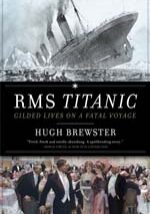In 701 B.C. the Assyrian empire was in its ascendancy. It had already vanquished the kingdom of Israel to the north including the capital at Samaria. It then prepared an assault on Judah and its capital at Jerusalem.
But in one of those significant events that changes the course of world history, Assyria was repelled. Jerusalem was saved until 586 B.C. when the Babylonians sacked the city, forcing its leadership class into exile.
Henry Aubin, in a major feat of scholarship, determines that Jerusalem was aided by a Kushite army from Africa which had marched northeast from the Nile valley. While the Bible attributes the Assyrian retreat to an angel and secular commentators cite pestilence, Aubin, in a meticulously documented work, demonstrates that an alliance with the African nation of Kush bolstered Jerusalem’s defences.
Kush, also known as Nubia, was located in what is now southern Egypt and northern Sudan. A monarchy that existed for more than 1000 years, from 900 B.C. to A.D. 350, Kushites held sway over Egypt from 712 B.C. to about 660 B.C. Of Egypt’s 31 dynasties, this, the 25th Dynasty, is the only one that all scholars agree, was black.
The commander of the Kushite expeditionary force was Taharqa (or as the Bible calls him Tirhakah). This Kushite prince, who had his own interests in halting Assyrian expansion, likely caught the aggressors by surprise as they prepared their siege of Jerusalem.
Aubin offers a thrilling military history and a stirring political analysis of the ancient world. He also sees the event as influential over the centuries.
The Kushite rescue of the Hebrew kingdom of Judah enabled the fragile, war-ravaged state to endure, to nurse itself back to economic and demographic health, and allowed the Hebrew religion, Yahwism, to evolve within the next several centuries into Judaism. Thus emerged the monotheistic trunk supporting Christianity and Islam.

Hugh Brewster has collaborated with Robert Ballard, the discoverer of the Titanic’s wreck on The Discovery of the Titanic and Titanic: An Illustrated History, which provided the inspiration for James Cameron’s epic movie Titanic. His 2007 bookCarnation, Lily, Lily, Rose: The Story of a Painting was chosen as one of the ten best books of the year by the Washington Post and was nominated for two of Canada’s top literary awards.

HarperCollins Canada 2012
Crown/Random House US 2012
Gawsewitch France 2012
Piemme Italy 2012
Mondadori/Random House Spain 2012
Robson Press UK 2012
Wydawnictwo Literackie Poland 2013
Praise for Gilded Lives,
Fatal Voyage
“This is one of those rare books on the subject that provides information both new and relevant, in a scholarly readable way. Highly recommended to anyone interested in the social history of the early 20th century.â€
Library Journal
“Brewster’s nuanced account introduces us to a plutocracy frolicking in the sunset of England’s Edwardian era and America’s Gilded Age. He pushes past stereotypes to vividly describe the elite realm on deck.â€
New York Times Book Review
“The greatest ship-borne collection of celebrities of its time… classy, delicious, wonderfully readableâ€
Christian Science Monitor
“will bring a tear to your eyes.â€
Daily Beast, Hot Reads
“Walter Lord’s A Night to Remember and James Cameron’s award-winning movie set the Titanic bar high. In Gilded Lives, Fatal Voyage, Hugh Brewster clears that bar with ease and shows again why the story never gets old.â€
Newark Star Journal
“[A] brilliant account of the first-class passengers who went down with the ship, giving us a glimpse into a Gilded Age about to disappear forever….Brewster’s method is simple and highly entertaining.â€
Minneapolis Star-Tribune
“Hugh Brewster’s colourful anecdotes and telling details show how 1912 – with its love-hate affair with celebrity, its romance with technology and contempt for the power of nature – sounds eerily familiar a century later.â€
Globe and Mail
Read a Q&A between Hugh Brewster and J. Kingston Pierce in January Magazine here.
Praise for Prisoner of Dieppe“After reading Prisoner of Dieppe, I am convinced that despite his boyish good looks, Hugh Brewster must have been overseas in WWII…As a historian I have read many books about WWII but Prisoner of Dieppe made the war experience real for me in a unique way.”
Canadian Children’s Book News
Praise for Carnation, Lily, Lily Rose
“…compelling, essential reading.â€
American Artist
“…this [is an] exquisite book.â€
Washington Post
Praise for The Other Mozart
“…history at its best, exciting and illuminating.â€
San Francisco Chronicle
“..an absorbing, beautifully illustrated biography.†Globe & Mail